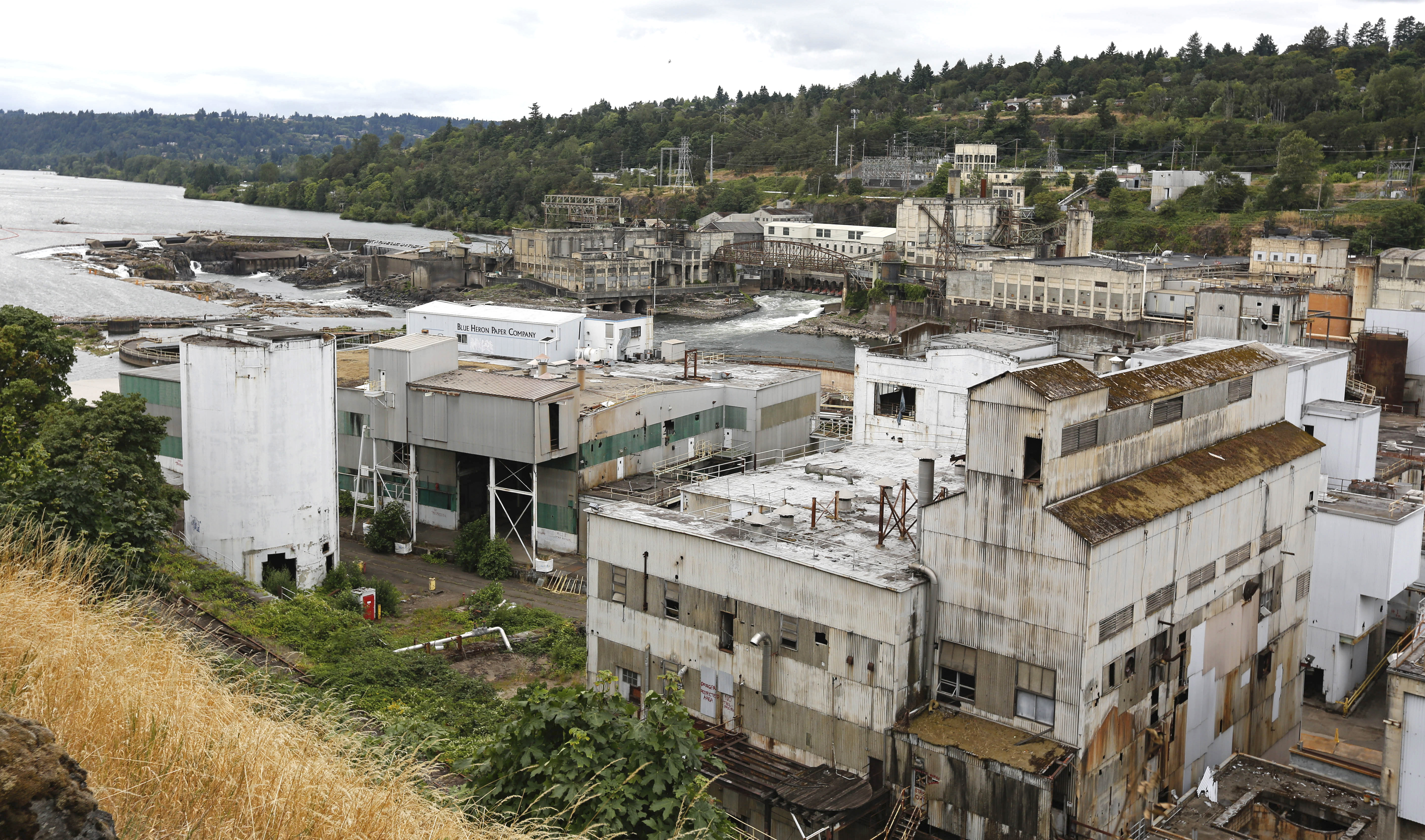Tribal Government & News
Hearing addresses Tumwata Village cleanup

By Danielle Harrison
Smoke Signals assistant editor/staff writer
Ever since the Grand Ronde Tribe purchased the former Blue Heron Paper Mill site in Oregon City in 2019, it has been making site improvements with the ultimate goal of creating a public space where everyone can learn about the original peoples who inhabited the land.
On Monday, Dec. 19, the Tribe held a virtual public hearing on the Zoom teleconferencing application, led by Tribal Engineering and Planning Department Manager Ryan Webb, who updated the 32 online participants on the environmental assessment and cleanup efforts.
The Tribe purchased the 23-acre former Blue Heron Paper Mill site at Willamette Falls for $15.25 million in August 2019. It purchased an adjacent half-acre plot for $1.235 million in 2020 in order for the site’s future use to be complementary to Blue Heron’s development. In 2022, the Tribe renamed the site Tumwata Village.
In 2021, the Tribe was awarded an $800,000 Brownfields grant from the Environmental Protection Agency to address a multitude of environmental issues at the former mill site that has been used for myriad industrial ventures since the mid-1800s.
The EPA grant funds environmental testing and decommissioning of underground storage tanks, and allows the Tribe to create plans for larger remediation projects that will focus on repurposing portions of the site and making preparations for demolition.
EPA Brownfields Project Manager Margaret Olson discussed different assistance options for grant recipients, such as reuse of contaminated sites for renewable energy production, planning activities around contaminated site reuse, and future activities with a focus and multiple agencies involved.
“When we talk about land reuse and revitalization, it doesn’t always mean a built environment,” she said. “It can also be restoring land to its natural state.”
Olson also shared information from the Brownfields ACRES online database about accomplishments in other Tribal communities. During the past 10 years, there have been 135 environmental assessments, 36 cleanups completed, $87 million generated, 343 jobs created and 97 properties ready for use.
Next, Tribal Historic Preservation Manager Briece Edwards shared the site’s history and how the Cultural Resources Department will be a point of contact for any potential archeological discoveries.
He said that Willamette Falls had been a sacred cultural, fishing and gathering place for the Grand Ronde people since time immemorial, and that the Tribe still honors its obligation as keepers of the falls.
“It is a very unique place within the Grand Ronde’s homelands,” he said. “It is very important to the Tribe and has been so for a long time. For the Grand Ronde, their engagement with this place began with its establishment ... to take the responsibility of stewardship and carry it through generations. Today, it is a place of healing with stewardship and maintenance obligations.”
Edwards also said that the Tribe has developed an inadvertent discovery plan to be implemented in case of any archeological finds during construction or remediation site work, with the Tribal Historic Preservation Office as the point of contact.
“We have experience working in these areas,” Edwards said. “We have a well-developed Cultural Resources Department and it is unique being able to carry historical information forward in a way that provides understanding. This is a place of deep connection.”
Webb said that the Brownfields grant has a lot of flexibility and could be used for sub-surface investigation work, cleanup and planning activities. He added that the Tribe would focus on funding investigation work, with potentially some cleanup as well, and planned to complete all work within four years. The grant will help the Tribe restore the site after generations of neglect by creating cleaner water and a healthier overall habitat.
“We have a great, well-rounded team and will focus on additional assessment and investigation work in 2023 and 2024,” he said. “We’ll see where the contamination is and make sure everything has been cleaned and remediated, and that water going through that system is clean water going into the Willamette River.”
Webb ended his approximate 35-minute presentation by asking if anyone in the audience had questions. None were submitted.
“I appreciate everyone taking time out of their busy evening to see what we are doing and what we plan to do in the future as well,” he said.
